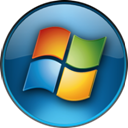Unlocking New Possibilities: The Best Windows XP Alternatives
Windows XP, a line of operating systems produced by Microsoft, was a cornerstone of personal computing for many years, known for its iconic interface and widespread adoption. While its name "XP" signifies "experience," its time as a primary operating system has largely passed. With outdated security protocols, diminishing software compatibility, and a lack of ongoing support, many users are now seeking modern, secure, and feature-rich Windows XP alternative options to keep their systems running smoothly and safely.
Top Windows XP Alternatives
Moving on from Windows XP opens up a world of possibilities, from robust open-source Linux distributions to more contemporary Windows versions. Here's a look at some of the best alternatives that offer enhanced security, improved performance, and a fresh user experience.

Ubuntu
Ubuntu is a widely acclaimed Debian Linux-based open-source operating system that serves as an excellent Windows XP alternative. It's free to use and provides a customizable, secure, and privacy-focused environment with features like OTA Updates and an efficient APT package manager. Available for Windows and Linux platforms, it offers a modern and stable computing experience.

Debian
Debian is a highly respected open-source operating system created by a community of individuals dedicated to free software. As a fantastic Windows XP alternative, it offers exceptional stability, low memory usage, and a flexible package management system. Available across Free, Open Source, Windows, Linux, Windows S, BSD, and Self-Hosted platforms, Debian is known for its robust security and customizable UI.

Linux Mint
Linux Mint is one of the most popular desktop Linux distributions, making it a strong contender as a Windows XP alternative. It's free, open-source, and offers a modern, elegant, and comfortable user experience with a Windows-like interface. Based on Ubuntu and Debian, Linux Mint is highly customizable, privacy-focused, and includes features like a built-in file manager, support for Nvidia drivers, and no tracking.

Arch Linux
Arch Linux is an independently developed, open-source GNU/Linux distribution targeted at competent Linux users. It's a lightweight, minimalistic, and highly customizable Windows XP alternative, featuring a rolling release model and its home-grown package manager, pacman. Available on Linux, it boasts a strong community, extensive wiki documentation, and ARM support, making it ideal for those who prefer to build their system from the ground up.

Windows 10
For those seeking a familiar environment, Windows 10 is a modern commercial operating system from Microsoft and a direct successor in the Windows NT family. It's a robust Windows XP alternative that offers an in-built GUI, OneDrive integration, tablet support, and Xbox Streaming. While it comes with a cost, it provides current features and ongoing support.

Windows 7
Windows 7, the successor to Windows Vista, offers a compelling combination of innovations and improvements over Windows XP. While its mainstream support has ended, it still provides a familiar Windows environment with features like Snap windows and even a Windows XP Compatibility mode, making it a viable stepping stone for those hesitant to fully transition to Linux. It is a commercial operating system.

Manjaro Linux
Manjaro is a user-friendly Linux distribution based on Arch Linux, offering an excellent balance of bleeding-edge software and stability. This free and open-source operating system is a compelling Windows XP alternative, featuring a rolling release model, out-of-the-box functionality, customizable options, and robust security. It's available on Linux and Arch Linux platforms, with support for Nvidia drivers and ARM.

Fedora
The Fedora Project offers an openly-developed, free, and open-source Linux-based operating system. As a reliable Windows XP alternative, Fedora provides an in-built GUI, separated workspaces, and out-of-the-box functionality. It's known for incorporating the latest open-source technologies and serving as a testing ground for Red Hat Enterprise Linux, making it a cutting-edge choice for users.

elementary OS
elementary OS is a free, fast, and aesthetically pleasing open-source operating system based on Ubuntu. It provides a macOS-like, distraction-free UI, making it an appealing Windows XP alternative for users who appreciate clean design. Available on Linux, it supports Flatpak for easy software installation and is Debian package compatible, offering a streamlined and efficient experience.

ReactOS
ReactOS is an open-source operating system that aims to be compatible with applications and drivers written for Microsoft Windows NT, including Windows XP. It's a free, lightweight, and community-based Windows XP alternative that can even run Windows software. Available on Windows and FreeDOS platforms, it offers a familiar Windows-like experience without the licensing costs, making it an intriguing option for legacy hardware.
Choosing the best Windows XP alternative depends on your individual needs, technical proficiency, and desired features. Whether you prioritize open-source flexibility, modern security, or a familiar interface, there's a robust operating system out there waiting to revitalize your computing experience. Explore these options to find the perfect fit and step into a new era of personal computing.